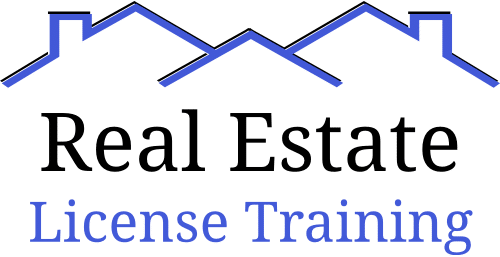When it comes to getting your business on the radar, nothing beats the far-reaching influence of social media.
The same is true for real estate marketing.
According to the National Association of Realtors (NAR), social media has been a key component in helping agents find potential clients.
More importantly, social media has become one of the most valuable tools in helping real estate companies close deals. That is if they have a smart social media strategy that’s designed to shine among your competitors.
Getting started in real estate social media marketing can be overwhelming considering the heavy competition and the technicalities of social media platforms.
In this article, we’ll learn how to score leads through social media marketing.
Let’s get started!
Is Social Media Marketing Effective for Real Estate?
If you’re still in doubt that social media marketing can work its magic in closing deals, check out these telling statistics from the NAR:
- 77% of realtors use social media for real estate business
- 44% of all buyers looked online for properties for sale as the first step to the home buying process.
- Social media was identified as the third most valuable technology tool (28%) that realtors use in business, after MLS and Lockbox/smart key devices.
- 47% of realtors identified social media as the top tech tool that has given the highest quality leads
What Social Media Platform Is Best for Real Estate?
Now that you know just how important social media is to the real estate industry, you might be wondering which are the most effective platforms. Here’s what the NAR says:
A total of 97% of realtors use Facebook for social media marketing. Meanwhile, 59% use LinkedIn and 39% use Instagram.
Facebook for Real Estate Social Media Marketing
Facebook is the best way to get started in real estate social media marketing. Real estate companies or even independent agents can set up a page to access Facebook Business for valuable features on a single platform:
- Publishing listings and market updates
- Booking appointments
- Accessing page analytics
- Targeting tools
- Promoting posts
- Booking appointments
- Communicating with clients
- Curating reviews
You should know that the Facebook algorithm favors posts with lots of engagement, so creating content that encourages sharing and commenting is a great way to reach audiences that will like your post.
Facebook ads are also a great way to reach the target demographic in your area.
LinkedIn for Real Estate Social Media Marketing
While LinkedIn isn’t the most obvious choice for finding leads, it’s the perfect platform for connecting with other real estate agents.
More than that, LinkedIn serves as the digital resume of many independent realtors. A good number of realty businesses have also set up their company pages on LinkedIn, allowing realtors to network with other brokerages, and their clients.
Instagram for Real Estate Social Media Marketing
Instagram is steadily becoming a goldmine for real estate businesses.
Instagram posts can contain a series of images, which is a great way for real estate agents to show off listings. Instagram stories also provide a personalized touch to reaching your clients with property updates every day.
Realtors who post compelling photos and captions make up one of the most popular types of Instagram content.
Top 3 Tips: What to Do for Real Estate Posts on Social Media?
Instead of bombarding your followers with sales pitches, consider these top social media tips to grow your audience:
Tip 1: Use High-Res and On-Brand Property Photos
Visuals are everything when it comes to social media marketing. Posting eye-catching high-resolution photos is the best way to engage your audience and get comments, shares, and likes. More than that, it will encourage more users to follow your page!
Because house hunting is visual, you can take advantage of Instagram or Pinterest to reach potential buyers and clients. Make sure to be clear that the home is for sale by including all the property information and realtor contact details.
Thankfully, there are various ways to get your photos to stand out among the sea of stunning content. Learn how to use photo editing software (like Photoshop or Lightroom) that will optimize your photos for each social media platform.
Tip 2: Tell a Story with Your Posts
Sure, you can just post real estate listings and expect to get a following. But remember that the most effective posts on social media are those that tell a compelling story.
When you post a new listing, include details that will make the property seem more “approachable.” Instead of simply posting the property price, features, and amenities, you can talk about the neighborhood and draw a picture of what it will be like to have a home in that area.
Another way to create compelling stories with your posts is to include client testimonials. Share stories of posts of happy customers enjoying life in their new homes to gain the trust of your audience. Posts that share client testimonials have a double purpose: to provide proof of your satisfied customers and to highlight the “human” side of your business.
Tip 3: Start a Conversation with Clients
There’s a reason why many real estate companies fail to make it on social media. It’s because relentlessly posting in-your-face advertisements may not be what potential homebuyers are looking for.
According to the NAR, 74% of homebuyers frequently use the internet in the home buying process. On top of that, 99% of millennials (the largest generational group of first-time homebuyers) use the internet for real estate information.
These statistics tell us that social media provides the perfect opportunity to build authentic relationships with your clients. You can hold a Q&A session via Facebook live, hold online contests, or include a question in your caption to start a conversation with your clients.
Conclusion
Social media is a valuable tool that realtors can use to find leads and build client relationships. By effectively using social media strategies on top platforms like Facebook, LinkedIn, Instagram, and Pinterest, real estate agents will reach a wider audience and close more deals.

